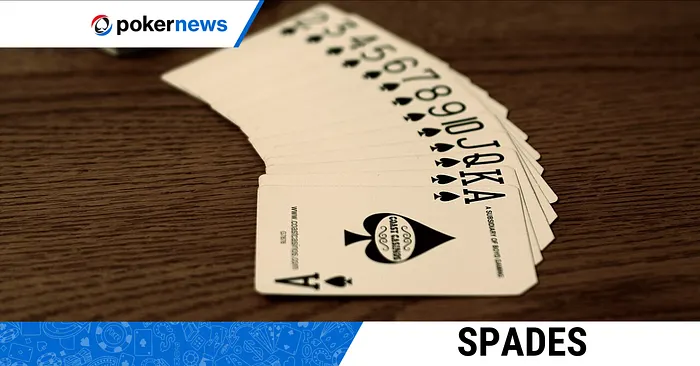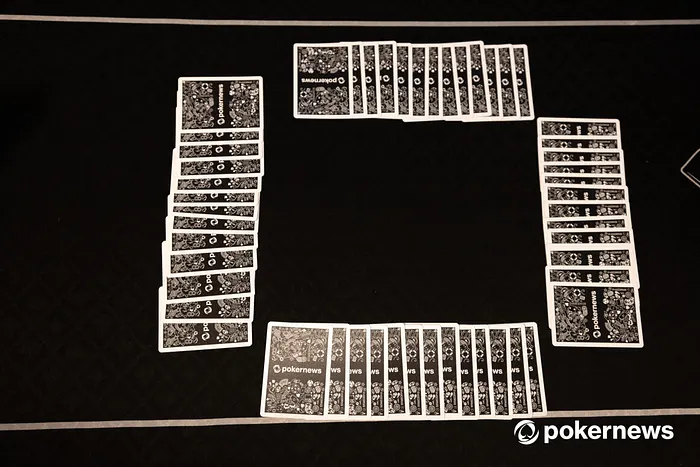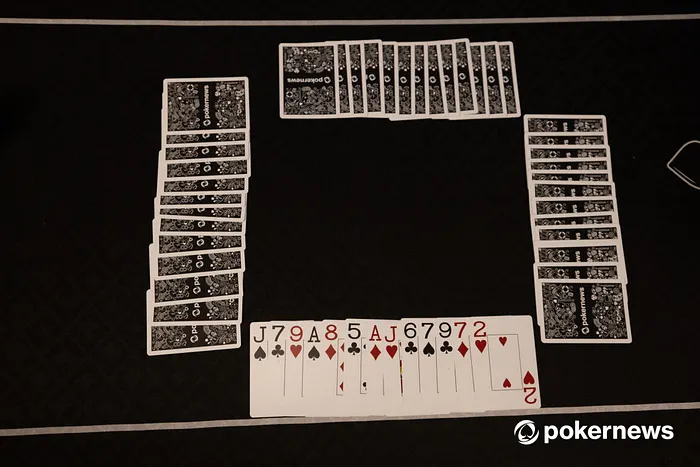How to Play Spades - A Comprehensive Guide to Mastering the Card Game

Welcome to the starting point of your journey in exploring the world of Spades with this ultimate PokerNews guide. Whether you are Spades for real money or just for fun, absorbing all the information here, you'll discover the rules, dynamics, and winning strategies that make this classic card game super fun to play.
By the end, you would have learnt how to play smartly and succeed as a team.
Basics of Spades
Spades is a trick-taking card game usually played by four players in partnerships. Understanding the basic rules, including bidding, making contracts, and scoring, is crucial for an enjoyable experience.
In Spades, a "trick" refers to a single round of play where each player plays one card. The trick is won by the player who plays the highest-ranking card of the leading suit or, if spades are played, the highest spade.
Here are the basic rules:
- The Deck: A standard 52-card deck is used. The suits have no intrinsic value in this game, and spades are always the trump suit.
- The Deal: The dealer shuffles the deck and deals the entire deck of cards equally to all players.
- Bidding: Players predict the number of tricks their team will take during the round. Starting from the dealer's left, each player can bid a number. Players are obligated to bid at least one trick.
- Contract: The combined bids of the partners represent the contract for that round. The team needs to win the exact number of tricks bid; no more, no less.
- Playing the Hand: The player to the dealer's left leads the first trick. Players must follow suit if possible; otherwise, they can play any card. The highest-ranking card of the leading suit or the highest spade wins the trick. The winner of a trick leads the next one.
- Scoring: After all tricks are played, the teams score points based on the number of tricks they successfully bid. If a team achieves their contract, they score 10 times the bid; otherwise, they lose 10 points for each trick they were off. Overtricks (tricks won beyond the contract) may also score points.
- Winning: The game typically continues until a predetermined score is reached, and the team with the highest score at that point is the winner.
Remember, Spades has many variations and house rules, so clarifying specific rules is essential before starting a game.
Setting Up a Spades Game
Getting a Spades game going is pretty simple. All you need is a regular deck of cards and four players who are up for some fun. Make sure everyone knows the basic rules and keep things easygoing. Split into two teams and have partners sit across from each other for better teamwork.
Start by shuffling the cards really well, let the player to the dealer's left cut the cards, and then deal them out one by one to each player. Everyone should end up with 13 cards, and it's important to keep your cards hidden from the other team.

Once the cards are dealt, it's time for bidding. Starting from the player on the left of the dealer, each person guesses how many tricks their team can win. Add up all the bids, and that becomes the target for the round. Be smart with your bids because reaching that target is how you score points.
After bidding, the player to the left of the dealer plays the first card to start things off. Everyone has to follow suit if they can, and the highest card of the leading suit or the highest spade wins the trick. The winning team keeps leading for the next tricks.
With these simple steps, you and your friends can jump into a game of Spades, enjoying the strategy and teamwork that make it a blast for everyone.
Gameplay Dynamics of Spades
Once you've set up the game, playing spades is a breeze. The dynamics are all about working with your partner, making smart moves, and aiming to fulfill your bid. Once the cards are dealt, it's time to strategize.
During each round, communication with your partner is key. You'll need to understand each other's styles and signals to maximize your chances of winning tricks. Remember, you're not just playing for yourself but as a team.
Bidding adds an extra layer of excitement. Everyone's predicting how many tricks they can win, and the total becomes your team's goal. But be careful not to overbid – you need to match your predictions to your actual performance to score points.
As the tricks unfold, keep an eye on the cards played. You want to gauge what's left in each suit, especially spades. Timing is crucial, and you'll want to play your higher cards strategically to win important tricks.
And don't forget about the power of the spade suit. A well-timed high spade can turn the tide in your favor. But don't waste them too early – sometimes holding onto them for the right moment is the key to success.
In Spades, it's not just about individual skill; it's about working together and making the right choices as a team.
Bidding and Making Contracts
Bidding and making contracts in Spades add an exciting strategic element to the game. Once the cards are dealt, each player gets a chance to estimate how many tricks their team can win.
Starting with the player on the left of the dealer, everyone places a bid, predicting the number of tricks they believe their team can achieve. These individual bids then combine to form the total contract for the round. It's a delicate balance – bid too high, and you risk falling short; bid too low, and you might miss out on potential points.
Communication with your partner becomes crucial during the bidding process. You want to ensure that both team players are on the same page regarding their bidding strategy. Trust and understanding between partners can make the difference between success and disappointment.
After the bidding, the real challenge begins – making contracts. Your team needs to win the exact number of tricks you bid; going over or under means losing points. It adds a layer of tension and excitement to each round as you work together to fulfil your shared goal.

The bidding and contract-making phase in Spades requires a mix of estimation, teamwork, and adaptability. This dynamic aspect of the game keeps players engaged and encourages strategic thinking, making every round a unique and thrilling experience.
Scoring in Spades
Scoring in Spades is where the results of your bidding and contract-making efforts come to life. After all the tricks are played, it's time to tally up the points based on how well you and your partner fulfilled your bid.
If your team successfully takes the exact number of tricks you bid, you score 10 times the bid. For example, if your bid was 3, you would earn 30 points. However, if you go over or fall short of your bid, you lose 10 points for each trick you missed. This adds a strategic edge – do you play it safe or take a risk to earn more points?
There's also the potential for overtricks, which occur when a team wins more tricks than they bid. Overtricks can boost your score, but be careful not to get too carried away – remember, going over the total bid doesn't earn extra points.
Keeping track of the scores is essential, as Spades is often played to a predetermined point total. The first team to reach or exceed this goal emerges victorious.
Scoring in Spades is not just about individual success but relies on effective teamwork and careful decision-making during the bidding phase.
Want to keep learning more about Spades? Check out our other guides!
FAQs - How to Play Spades
Can Spades be played with a standard deck of cards, or are specific decks required?
Yes, Spades can be played with a standard 52-card deck. The four suits, including spades, are used, and the deck is typically shuffled and dealt in a traditional manner.
How does the process of determining the dealer rotate in Spades?
The dealer in Spades is typically determined by players drawing cards from a shuffled deck. The player with the highest-ranking card becomes the dealer, and the dealing order proceeds clockwise in subsequent rounds.
Are there variations in the rules of Spades, or is there a standardized set of regulations?
While there are core rules to Spades, house rules and variations can exist. Establishing clear rules before playing is essential to ensure everyone is on the same page regarding bidding, scoring, and other nuances.
What happens if a player fails to meet their contract in Spades?
If a player or partnership fails to meet their contracted number of tricks in Spades, they incur a penalty of 10 points for each trick short. Accruing too many of these penalties can significantly impact the overall score.
Are there strategies for winning more tricks in Spades, or is it purely luck-based?
While the luck of the cards plays a role, strategic bidding, communication with your partner, and understanding the dynamics of the game contribute to success in Spades. Skilled players can employ tactics to increase their chances of winning tricks and fulfilling contracts.
